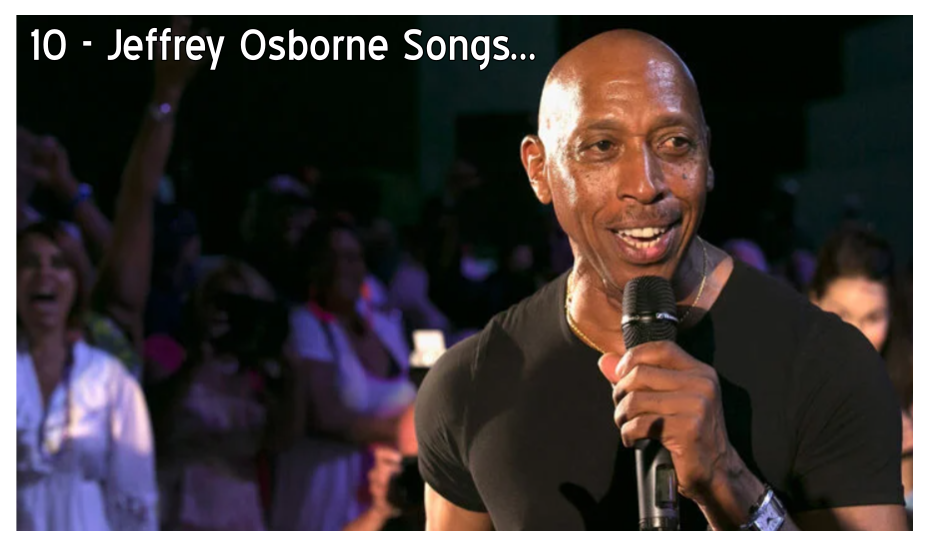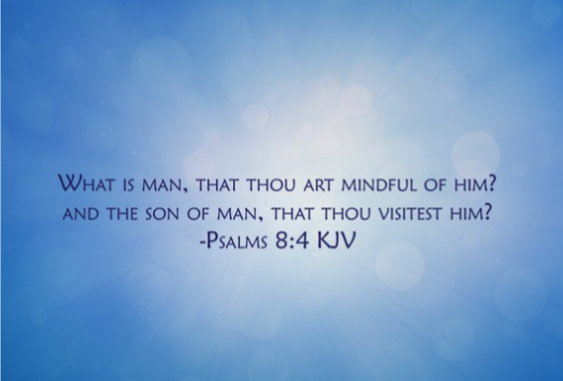(ThyBlackMan.com) There’s just something about Jeffrey Osborne’s voice that sticks with you long after the song ends. Maybe it’s the warmth, maybe it’s the sincerity—or maybe it’s how effortlessly he makes you feel like the lyrics were written just for you. Whether you first heard him belting out ballads with L.T.D. or fell in love with his solo grooves in the ’80s, Osborne is one of those rare artists who sings with both technical perfection and emotional honesty.
For me, his music has always been the soundtrack to the quiet moments—those late-night drives, the dances in the living room, or the times I just needed a song to say what I couldn’t. He doesn’t just sing love songs—he tells love stories. And the beauty is, these songs still hit just as hard today as they did decades ago.
So whether you’re rediscovering his classics or diving into his discography for the first time, here are 10 Jeffrey Osborne songs that continue to shine. Each one is a reminder of why his voice is a staple in R&B and why his music remains a timeless gift to those who appreciate true soul.

1. “On the Wings of Love” (1982)
This is the quintessential Jeffrey Osborne ballad—elegant, heartfelt, and timeless. “On the Wings of Love” showcases Osborne’s rich tenor vocals soaring over a lush orchestral arrangement, an ideal canvas for his emotional storytelling. Released as part of his self-titled debut solo album, the song marked a pivotal moment in Osborne’s career, transitioning from frontman of L.T.D. to a solo force with musical gravitas. His vocal delivery is powerful yet tender, filled with nuance that makes each line land with emotional precision.
What truly makes this ballad endure is its soaring optimism. The metaphor of love lifting two souls into the heavens is poetic, universal, and deeply resonant. Osborne doesn’t just sing this song—he embodies it. The way he builds each chorus with controlled power, only to draw it back in the verses, shows a masterful grasp of dynamics. Unlike many ballads from the same era that leaned heavily on production, this track breathes because of the space left for the voice to shine.
Even in today’s streaming era—where minimalism and lo-fi dominate R&B—this track holds weight. Whether played at weddings, romantic anniversaries, or simply during a slow-dance moment, “On the Wings of Love” connects with listeners seeking a pure expression of love and commitment. It doesn’t rely on vocal gimmicks—it’s a straightforward yet deeply emotional performance. In playlists alongside artists like Adele or John Legend, this track doesn’t sound dated; it sounds classic. It’s the kind of timeless love song that spans generations, speaking to anyone who’s ever truly fallen in love.
2. “Love Ballad” (with L.T.D., 1976)
Before soaring solo, Jeffrey Osborne fronted the funk and soul band L.T.D., and “Love Ballad” remains one of their—and his—most iconic offerings. From the opening bars, there’s a calm, unforced elegance to the song. With silky instrumentation and warm, analog textures, “Love Ballad” delivers a quintessential ‘70s slow jam experience. But what elevates it from good to great is Osborne’s vocal performance—pure, restrained, yet emotionally overwhelming. He makes the listener feel like they’re the only one in the room.
The lyrics themselves are romantic poetry: “I have never been so much in love before,” Osborne sings, with every word soaked in sincerity. There’s no theatricality or over-embellishment. His voice flows effortlessly through the melody, giving the impression of someone discovering the depth of love in real time. It’s this sense of authenticity that keeps the song fresh even today. The gentle rhythm section, the soft keyboard flourishes, and subtle backing vocals all serve one purpose—to support that mesmerizing voice.
Listening to “Love Ballad” today is like opening a love letter written in cursive—a timeless reminder of what genuine affection sounds like. In a music era where digital manipulation often masks vocal shortcomings, “Love Ballad” serves as a benchmark for vocal purity and emotional vulnerability. Artists like H.E.R., Daniel Caesar, and Giveon owe a debt to songs like this, which showed that less can be more when done with heart. This track should be required listening in any serious R&B collection—not for nostalgia’s sake, but because its craftsmanship is still teaching us how love songs should be done.
3. “Stay with Me Tonight” (1983)
“Stay with Me Tonight” is a masterclass in blending funk, soul, and pop sensibilities. Released during the peak of Osborne’s solo ascent, this track became a massive hit—and rightfully so. From the opening synth stab to the rolling bass line, the song commands attention. It doesn’t tiptoe into your playlist—it kicks the door in with charm and groove. Jeffrey’s vocals are urgent yet polished, striking that perfect balance between romantic plea and confident desire.
Lyrically, the song is a request for intimacy, for emotional and physical presence, without sounding needy. Osborne phrases his lines in such a way that they feel like personal conversations, not just lyrics recited in rhythm. “Let’s make a night to remember,” he seems to say with every note, and the musical arrangement backs him up with sharp guitar riffs, punchy drums, and synth elements that reflect the soundscape of early ‘80s urban pop.
Even in modern party settings, “Stay with Me Tonight” feels fresh. DJs still spin it in retro-themed events, and it consistently elicits movement. Its blend of dancefloor sensibility and vocal excellence gives it staying power. Compared to some of his slower tracks, this one shows a funkier, livelier side of Osborne—proving that he wasn’t confined to ballads. Younger artists aiming to merge classic R&B with pop should study this track—it’s an example of how to be rhythmic without losing vocal integrity. A fun fact for modern fans: many neo-soul producers and crate-digging beatmakers have sampled this track’s rhythm section for its clean, timeless energy.
4. “You Should Be Mine (The Woo Woo Song)” (1986)
With its cheeky nickname and feel-good energy, “You Should Be Mine (The Woo Woo Song)” became a radio darling and one of Jeffrey Osborne’s most widely recognized solo efforts. The title itself, drawn from the backing vocal hook that playfully chants “woo woo,” gives the song a memorable, endearing quality that sets it apart. It was catchy without being cheesy, smooth without being syrupy, and commercial without losing its soul. Osborne’s vocal runs—those precise, emotionally guided flourishes—are woven seamlessly into the song’s upbeat instrumentation, making it an earworm in the best way possible.
What elevates the track is the musical polish. The production is quintessential mid-‘80s—bright, synth-driven, and tight in arrangement—but Osborne’s voice is never lost in the mix. Instead, he drives the song, showing that even within a light-hearted groove, his phrasing and breath control remain top-tier. Lyrically, it’s a straightforward message of desire and admiration, but it’s the delivery that makes it feel personal. Whether crooning the main melody or playfully echoing the chorus, Osborne infuses each line with intention.
“You Should Be Mine” remains relevant because it captures a universal emotion—flirtation evolving into something deeper—without taking itself too seriously. Its energy mirrors that of today’s pop-infused R&B hits. Artists like Bruno Mars, Anderson .Paak, and even Usher have borrowed elements of this breezy blend of funk, pop, and soul. It’s a song you can throw on during a road trip, a house party, or a romantic evening, and it still feels alive. It’s not just a nostalgic favorite; it’s a blueprint for crossover success without sacrificing vocal excellence.
5. “We’re Going All the Way” (1983)
There’s a delicate beauty to “We’re Going All the Way” that makes it one of Osborne’s most underrated masterpieces. While many know him for the towering ballads and uptempo dance grooves, this song reveals his deep understanding of musical intimacy. From the moment the track begins, there’s a softness in the chord progression that sets a romantic, almost cinematic tone. It’s a love song that doesn’t just express emotion—it builds an atmosphere around it, drawing you into a private moment between two people on the brink of deeper connection.
Vocally, Osborne is in his sweet spot here. He doesn’t oversing; instead, he gently climbs through the verses and then pours his heart into the chorus with controlled intensity. The background harmonies are subtly arranged, acting more like a warm embrace than a vocal crowd. Every note feels intentional, every lyric filled with devotion. “We’re Going All the Way” isn’t about short-term affection—it’s about longevity, about choosing to move forward together even when things get tough. That sentiment hits hard in a world where fleeting love often takes center stage.
Listening to it now, the track feels tailor-made for today’s “grown and sexy” R&B wave. Think Kem, Maxwell, or Jazmine Sullivan—artists who craft songs meant for deep listens, quiet reflection, and meaningful connection. If you’re building a playlist for a romantic dinner, a reflective night drive, or even a proposal, this song is essential. Osborne’s ability to whisper commitment through melody proves why he remains one of the most emotionally intuitive vocalists of his generation.
6. “Don’t You Get So Mad” (1983)
There’s a swagger to “Don’t You Get So Mad” that makes it instantly engaging. Released during Osborne’s creative peak, this track combines a punchy rhythm with lyrical charm, creating a song that feels both conversational and danceable. The lyrics walk a clever line—Osborne acknowledges that he may have done something wrong but doesn’t let the apology kill the vibe. Instead, he invites reconciliation through rhythm. “Don’t you get so mad at me,” he sings, like a lover trying to make amends while also pulling you into a slow, body-moving groove.
Musically, the song leans on funky synths, rhythmic claps, and bright guitar licks that echo the era’s production trends without sounding dated. The instrumental palette is rich but never crowded. Osborne navigates it with ease, adding vocal ad-libs and subtle changes in tone that give the song texture. It’s that blend of charisma and vocal dexterity that makes this track more than just a radio hit—it’s a storytelling moment wrapped in a groove.
In today’s musical landscape, “Don’t You Get So Mad” would feel right at home among contemporary R&B revivalists. It’s easy to imagine artists like Lucky Daye, Leon Bridges, or Silk Sonic reinterpreting this tune with a modern twist. Its core message—using charm and music to defuse tension—is timeless. It’s the kind of track you’d expect to hear in the background of a romantic comedy or spun by a DJ looking to get the grown folks dancing. It proves that songs about love, conflict, and making up don’t have to be heavy—they can be smooth, funky, and endlessly replayable.
7. “Only Human” (1990)
“Only Human” stands as one of Jeffrey Osborne’s most introspective and emotionally mature recordings. Released at the dawn of a new decade, this 1990 ballad arrived at a time when R&B was beginning to shift toward more introspective, adult contemporary themes. Osborne embraced that evolution with grace. The song begins with soft piano chords, gradually unfolding into a heartfelt confession of personal flaws and a plea for understanding. It’s a musical admission that perfection is a myth—that we’re all bound to make mistakes.
What sets “Only Human” apart is its lyrical vulnerability. Osborne doesn’t try to cover up his imperfections with metaphors or gloss. He sings plainly, “I’m only human, born to make mistakes,” and those words hit like a whisper to the soul. The restraint in his vocal delivery is masterful—he never oversings, instead letting the sentiment speak through tone and timing. This is a man laying down his pride for the sake of reconciliation, and it resonates deeply with anyone who’s experienced the complexities of long-term love.
In today’s emotionally open and therapy-embracing culture, “Only Human” finds new relevance. It belongs on the same playlists as John Mayer’s “Gravity” or Sam Smith’s “Too Good at Goodbyes”—songs that tell us that admitting fault is not weakness but growth. For anyone navigating the ups and downs of real adult relationships, this track provides a soothing, soulful soundtrack to self-awareness. It’s an underappreciated gem in Osborne’s catalog—one that feels especially healing in today’s era of emotional transparency.
8. “I Really Don’t Need No Light” (1982)
As one of the standout cuts from his 1982 debut solo album, “I Really Don’t Need No Light” helped introduce the world to a different side of Jeffrey Osborne. This wasn’t just the frontman from L.T.D. going solo—this was an artist exploring groove, sensuality, and metaphor with confidence. From the very first seconds, the bassline grabs you. It’s a rich, velvety throb that sets the mood for what feels like an after-midnight serenade. The production has a smoky, seductive feel that lands somewhere between funk and quiet storm.
Lyrically, the metaphor of not needing literal light to see love or feel connection is profound. It’s both romantic and spiritual in its subtext, suggesting that true love reveals itself intuitively. Osborne’s vocal phrasing on this track is deliberate and smooth—he stretches notes just long enough to draw the listener in, almost teasing with his delivery. The instrumentation never overwhelms. The groove simmers, allowing Osborne to explore his lower register while keeping the energy low-key and mysterious.
In today’s music world, where artists like The Weeknd, Brent Faiyaz, and Miguel blur the lines between R&B, soul, and electronic soundscapes, “I Really Don’t Need No Light” fits in effortlessly. It’s the kind of deep cut that crate diggers and sample-savvy producers adore. Moody, soulful, and packed with nuance, this track proves that Osborne wasn’t afraid to take sonic risks early in his solo journey. It still feels innovative, proving once again that great music is timeless.
9. “Crazy About Cha” (1983)
“Crazy About Cha” is Jeffrey Osborne at his most relaxed, playful, and rhythmically inventive. Appearing on his second solo album, this track leans into funk and feel-good vibes without ever losing that vocal smoothness he’s known for. From the first beat, the song jumps into a celebratory groove. The horns blare like a party announcement, the bassline bounces with joy, and Osborne sounds like he’s having an absolute blast. It’s a musical love letter that’s more about how someone makes you feel in the moment than a deep, contemplative exploration of romance.
What makes the song special is its unapologetic energy. It’s flirtatious, yes, but it’s never juvenile. Osborne delivers the lyrics with a wink, backed by jubilant instrumentation and a call-and-response pattern that echoes classic soul and funk traditions. The chorus is infectious—an invitation to dance, to smile, and to fall in love with the feeling of being in love. Even the title—“Crazy About Cha”—adds a casual, conversational tone, making it accessible and endearing.
In an era where many love songs are tinged with heartbreak or complication, “Crazy About Cha” is a reminder that love can also be light and joyous. This song would fit beautifully into a playlist next to upbeat tracks from artists like Anderson .Paak or Vulfpeck—those who celebrate musical craftsmanship and high-spirited fun. It’s a track that lifts your mood instantly. For anyone in need of a sonic pick-me-up, this tune is a burst of sunshine on vinyl.
10. “She’s on the Left” (1988)
“She’s on the Left” is one of Jeffrey Osborne’s most adventurous forays into contemporary funk-pop, and it paid off. Released in 1988, the song hit #1 on the Billboard R&B chart, and for good reason—it’s punchy, confident, and rhythmically dynamic. The beat is infectious, driven by electric drum machines and glossy synths characteristic of the late ’80s. Yet despite the slick production, Osborne’s vocals remain the centerpiece. He navigates the groove with swagger and precision, proving once again his mastery over both melody and rhythm.
Lyrically, the track is about recognizing a missed opportunity—seeing a woman you once loved now moving on without you. But instead of wallowing, Osborne channels that realization into a high-energy groove. The song has urgency, but not despair. It’s more about chasing after what might still be possible, and that tension gives the song a dramatic edge. Osborne’s phrasing here is exceptional—he darts through the verses with speed and clarity, then opens up in the chorus with an emotive punch.
Even today, “She’s on the Left” is a standout example of how R&B can embrace funk and pop sensibilities without losing its soul. It would not be out of place in a retro-futuristic playlist, rubbing shoulders with cuts from Prince or even Jam & Lewis-produced tracks. Its fusion of sleek production and classic vocal delivery proves that Osborne could adapt to evolving soundscapes while staying true to his artistry. For fans exploring the late ‘80s R&B landscape, this track is essential listening.
Listening back to these songs, I’m reminded why Jeffrey Osborne is so special. He didn’t just create hits—he created moments. Whether it’s the heart-pounding groove of “Stay With Me Tonight,” the quiet vulnerability of “Only Human,” or the joy bursting out of “Crazy About Cha,” his music connects because it’s real. It’s rooted in emotion, not ego. And that’s rare.
In a world that often moves too fast, these songs give us permission to slow down and feel—to dance, to cry, to reflect, or just to be still with the music. Osborne’s catalog is a masterclass in vocal control, lyrical sensitivity, and emotional storytelling. And the best part? It’s still every bit as relevant today.
So if you haven’t revisited Jeffrey Osborne in a while—or if you’re just getting to know his work—start with these ten songs. Let them play. Let them breathe. And let them remind you of the power of a truly great voice.
Staff Writer; Jamar Jackson

















Leave a Reply